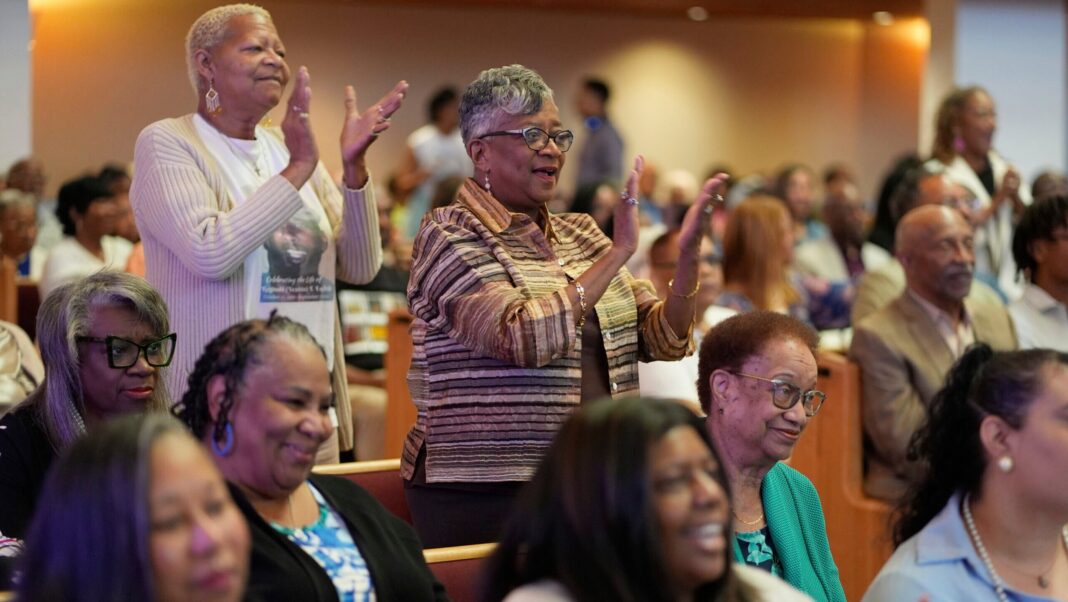A Call for a Second Civil Rights Movement
The Rev. Emanuel Cleaver III has raised a rallying cry that resonates deeply within the civil rights advocacy spectrum, urging for a second Civil Rights Movement. This urgency arises in response to actions taken by former President Donald Trump and fellow Republicans to redraw congressional district boundaries, maneuvering to augment their power in Washington, D.C. With roots in Kansas City, Cleaver III’s concerns are echoed by many constituents who feel that these redistricting efforts threaten the hard-won gains of Black Americans and could diminish their representation in Congress.
Impacts of Redistricting in Missouri
In Missouri, recent redistricting initiatives have sparked alarm among diverse communities, particularly those aligning with Cleaver’s father, Democratic Rep. Emanuel Cleaver II. The implications of these changes resonate widely, stirring fears that such a “national redistricting scramble” may reverse progress achieved over the past two generations, leaving communities vulnerable and underrepresented.
Amidst these tumultuous times, Cleaver III implored members of the St. James Church congregation to take action, emphasizing that if people of faith don’t rise to the occasion, the nation may regress further regarding civil rights.
Acknowledgement of Partisan Intent
Indeed, Trump’s administration has unapologetically embraced a partisan approach to redistricting, emboldened by a Supreme Court that has rendered decisions allowing gerrymandering based on political affiliations. This phenomenon isn’t unique to Missouri; California’s Democratic leaders have similarly proposed district revisions to counterbalance Republican gains in other states, highlighting the contentious nature of redistricting as a tool for political maneuvering.
Race-Based Gerrymandering Concerns
With new maps emerging not just in Missouri but also in Texas, civil rights advocates have raised alarms about the ramifications of race-based gerrymandering. Redistricting tactics known as “packing” and “cracking” are utilized to manipulate representative outcomes. Packing consolidates minority voters into fewer districts, effectively minimizing their legislative influence, while cracking disperses these voters across multiple districts, diluting their voting power.
The NAACP’s President, Derrick Johnson, has referred to these maneuvers as “a redistricting civil war,” advocating for legal measures to challenge and block the new plans that threaten minority representation.
Community Voices in Kansas City
Local residents have begun voicing their concerns as discussions around redistricting heat up. The fear that neighborhoods will become divided into multiple districts is palpable. For many, the potential loss of from federal investment in essential services like education and healthcare looms large. Retired nurse Meredith Shellner expressed her worries that the proposed changes would ultimately be detrimental to the community as a whole.
The Targeting of Black Lawmakers
The new congressional map for Missouri underscores the stark political shifts aimed at diminishing the influence of Black lawmakers. With a predominately white Republican delegation, the new configurations could yield a dramatic 7-1 Republican advantage, further marginalizing Black representation. Rep. Dirk Deaton, a supporter of the new map, argues that it aligns better with Missouri’s conservative values, while critics maintain it endangers the voices of minority communities.
Education and Unified Representation Concerns
Compounding the ramifications of these political shifts is the impact on local families and their educational landscapes. Residents like Ashley Sadowski, a white mother, lament the disruption in continuity for her children’s education, questioning the fairness of dividing their community into disparate districts. She articulated the importance of having a unified voice in Washington to advocate for adequate resources and support for future generations.
Texas: A Similar Narrative
In Texas, the story unfolds similarly, with new maps drawn to favor Republican advantages at the expense of minority representation. Governor Greg Abbott has insisted that the adjustments aim to group voters more accurately according to their demographic makeup, yet many argue that these changes serve to deepen racial divides and marginalize communities of color. The increase in predominantly white districts seems poised to reduce representation for Black lawmakers, instigating significant backlash from various civil rights organizations.
Legal Efforts Against Gerrymandering
The NAACP’s response to these redistricting efforts has included legal action to halt the Texas plan, underscoring Section 2 of the Voting Rights Act. This legislation is designed to safeguard against electoral laws that infringe on minority voter representation, positioning the NAACP at the forefront of a crucial legal battle.
Historical Context and Present-Day Implications
The present situation has drawn reflections from community members, like 77-year-old retired teacher Saundra Powell, who sees echoes of past injustices in today’s landscape. Powell’s personal history with educational segregation heightens the urgency surrounding the redistricting debate. Her recollections serve as a stark reminder of the sacrifices made for civil rights, and she warns against complacency in the face of potential regression.
The ongoing discourse surrounding these redistricting battles in Missouri and Texas continues to highlight critical tensions within American political life, while galvanizing a renewed commitment to civil rights advocacy.



